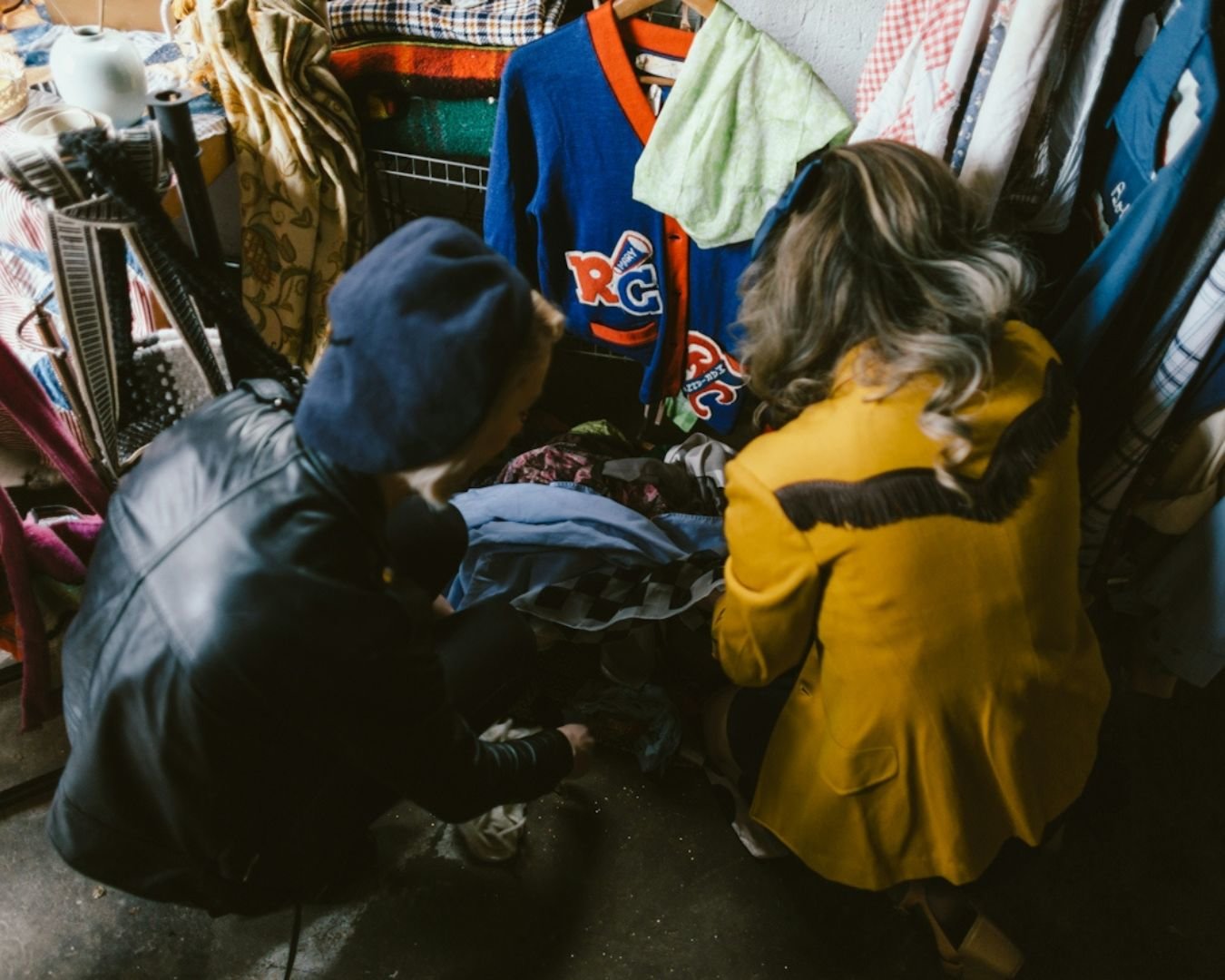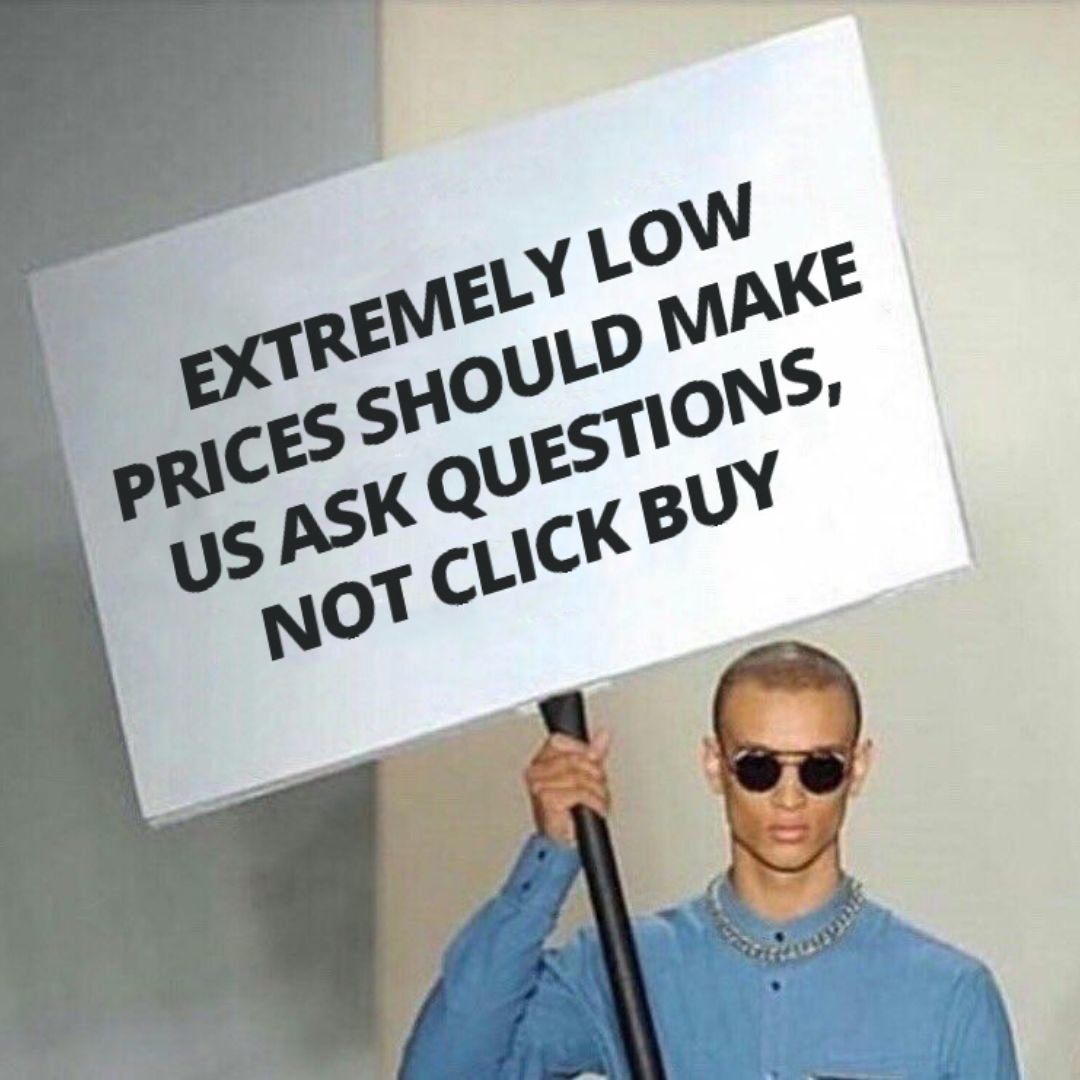Has Black Friday been cancelled?

What used to be a great time to cop some steals is now a frowned upon frenzy of impulse spending: our perception of Black Friday has completely changed in the last 5 years.
I used to love opening YouTube and watching all the Black Friday haul videos as a teenager, jealous of the mountains of stuff people got from shops we didn’t have in England like Bath and Body Works and Pascun.
Now, I think back to the sheer amount of stuff people were buying- some of the videos being as long as 25 minutes - and I am shocked. In recent years, many of us have become more aware of the damage of overconsumption and what large discounts actually mean.
We talked with someone from the Whering Team about their experience working for a brand around Black Friday, and how the brand approach changed as the years went on…

When you worked for this brand, how big of a deal was Black Friday?
Black Friday held significant importance in our marketing and sales calendar. It was a time of heightened anticipation both within the company and among our valued customers.
It brought with it a surge in sales and engagement, and it was viewed as a pivotal moment for the brand to connect with our audience and deliver exceptional value. The preparation for Black Friday campaigns was a rigorous process, and it involved a cross-functional team effort, working together to ensure a seamless and memorable shopping experience.
We placed a strong emphasis on creating exclusive offers for loyal customers alongside a unique shopping experiences, making Black Friday a standout moment in our annual marketing strategy. It was not only about sales but also about building a lasting connection with our customers, fostering brand loyalty, and setting the stage for the holiday season.
Did it become a challenge to acknowledge sustainability/consumption around the time of Black Friday, or was it not a concern?
Sustainability and responsible consumption became central considerations as Black Friday approached. The challenge we faced was in striking a delicate balance between the excitement of Black Friday and the imperative to promote conscious shopping practices.
We recognised that Black Friday could sometimes inadvertently encourage excessive and unsustainable shopping, which ran counter to our commitment to reducing our carbon footprint and promoting more ethical and eco-friendly fashion.
To address this challenge, we initiated strategies that encouraged our customers to make mindful choices and opt for products with a lower environmental footprint. We integrated messaging in our campaigns that highlighted the quality, durability, and timelessness of our products.
By emphasising the durability of our products, we aimed to reduce the fashion industry's contribution to landfill waste, which was a crucial aspect of our broader sustainability goals.
Ultimately, Black Friday has evolved to encompass not just the excitement of shopping but also the responsibility of conscious consumption.
Did you notice any changes in how the brand approached Black Friday as sustainable fashion/climate change became more topical?
Yes, as sustainability and climate change became more topical and were woven into the fabric of consumer consciousness, we observed significant changes in how we approached Black Friday.
The brand recognised that it needed to respond proactively to the growing concern among consumers regarding sustainable fashion, the environment, and their own role in responsible consumption.
We began urging our customers to consider the long-term value of our products, showcasing their timeless design and quality.
We also placed a spotlight on our eco-friendly product lines and the sustainable practices we had embraced across our supply chain, including our commitment to using 100% sustainably sourced cotton. All these actions demonstrate how brands had to reevaluate their messaging following the industry's sustainability transformation.
Based on this conversation, we decided to look into the damage of Black Friday, and it was shocking…

The Impact of Black Friday
Black Friday & Cyber Monday are considered two of the most polluting days of the year. Since the concepts have been adapted globally, the footprint has grown accordingly.
A report released in November 2020 by U.K. price comparison website Money.co.uk has put into perspective how much of a climate menace Black Friday is. In the UK alone, it was expected that over 429K metric tons of greenhouse gas emissions would be produced during the Black Friday period in 2021 from the delivery process alone. That’s equal to 435 return flights from London to New York. Wow.
But how does it compare to our usual expenditure?
According to Ian Tiseo and a study published on Statista, the United Kingdom's domestic shipping emissions were 5.3 million metric tons of carbon dioxide equivalent (MtCO2e) in 2020. Divide that by the 365 days in the year, and you get a daily average of 14.5k metric tons.
So, Black Friday has a much worse impact on the planet than other sales throughout the year.
Not only that, but many products purchased during Black Friday are used minimally before they are discarded completely. Up to 80% of our Black Friday purchases are simply thrown away after 0-1 uses.
So, we get it, it’s bad - but what now?
If you’re looking for ways to make Black Friday ‘more sustainable’ or even things to do instead of shopping on Black Friday, we got you covered in our article from last year.
We're interested to see how Black Friday goes this year, looking at how brands take on the challenge of earning profit and being mindful of the planet as it becomes increasingly important.
Something on your mind?
Share your thoughts with Whering community.
If you have an idea for an article around fashion, culture, environment, news, wellness, shopping or DIY, submit a pitch to us!



